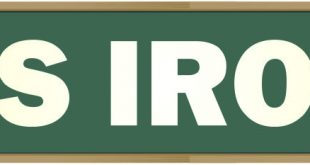By contrasting the Turkish and Pakistani military interventions it becomes obvious that Pakistan has endured longer spells of dictatorship without any formal ‘memorandums of warning’ to the elected governments.
The Turkish courts have even convicted elderly leaders of Turkey’s 1980 military coup, Kenan Evren and Tahsin Sahinkaya. On the other hand, in Pakistan, the former president and chief executive, Pervez Musharraf is giving long interviews on private channels of electronic media. Recently, the present Chief of Army Staff, General Ashfaq Pervez Kayani had high-level engagements with the Russian political leadership. This is sufficient to gauge the ‘extent’ to which the army is still rooted in the political nexus of Pakistan.
The path cobbled by both, Turkey and Pakistan to engender democratic trends has been more or less the same. Pakistanis and Turks, paid a heavy price to triumph over authoritarian suppression. Recently, the Turkish premier, Recep Tayyip Erdogan, claimed that ‘the era of military coups is over’ for the Turks. His opponents might call it an exaggeration, but Erdogan considers Turkey as an exemplary political set-up for the Muslim countries around the world to emulate. He has a substantial justification for christening Turkey as an ideal Muslim nation, fostering secularism, pursuing the most advanced form of democracy and curbing authoritarianism.
The ruling Justice and Development Party, which came to power in 2002 has maintained Turkey’s decades-old secular system, but at the same time has curtailed the power of the military. The latest number of military officers entering into the prisons of Turkey is ‘326’. They are being charged for their fruitless efforts to derail democracy in 2003.
The Pakistani leadership hasn’t been audacious enough to figure out the ‘belligerent generals’ in the military cadre. Those mighty boots, which enter into politics by legitimising their actions, exercised free will as no one punished them for their transgressions. The longest-serving, elected civilian regime of Pakistan (Pakistan Peoples’ Party and her coalition partners) bade farewell to the ‘US-tamed’ dictator by giving him a ‘guard of honour’.
Four military interventions have hampered democratic systems in Pakistan and Turkey. However, the political evolution and constitutional development has been strikingly different for both the countries. The creation of Pakistan was itself a miracle and its sustenance turned out to be a greater miracle. Being a vulnerable nation fraught with innumerable challenges after the partition in 1947, Pakistan lost her indispensable leader. Quaid-e-Azam Muhammad Ali Jinnah’s demise provided an opportunity to the politicians for displaying their ‘lust for power’. A delay in the process of constitution-making followed by a lot of controversies allowed two key players to step into the political premises. The ‘clergy’ and the ‘army’ began to expand their influence in terms of penetration and dictate. A weak political management aided the army to become more independent as an institution. The proclamation of martial law and the abrogation of constitution was not a hard nut to crack under such circumstances.
Ayub Khan with his ‘Basic Democrats’ was the first one to propagate the idea that ‘democracy’ was a ‘luxury’ which Pakistan couldn’t afford. In 1958, the first military attach to Washington, Brigadier Ghulam Gillani was instructed by General Ayub to acquire military equipment from Pentagon (without taking the foreign office into confidence).
A new era began in Pakistan on October 12, 1999. General Pervez Musharraf (a Kemalism-inspired dictator) who got his mid-career training from Turkey, declared himself ‘chief executive’. His regime was no different with regards to pattern and operation. Like the previous military interventions, Musharraf began with a call for ‘change’, ‘reform’ and a message of ‘hope’. By suspending parts of the constitution, he too stigmatised the corrupt politicians.
In 1973, Ecevit, won an upset victory. Nevertheless, the same problems highlighted in the memorandum re-emerged. From 1980 to 1983 the Turkish armed forces, headed by Chief of the General Staff General Kenan Evren ruled the country through the National Security Council, before democracy was restored.
After 17 years, a ‘post-modern coup’ was installed. evil Bir, one of the generals who planned the process said:
In Turkey we have a marriage of Islam and democracy. The child of this marriage is secularism. Now this child gets sick from time to time. The Turkish armed forces is the doctor, which saves the child. Depending on how sick the kid is, we administer the necessary medicine to make sure the child recuperates.’
By contrasting the Turkish and Pakistani military interventions it becomes obvious that Pakistan has endured longer spells of dictatorship without any formal ‘memoranda of warning’ to the elected governments. The Turkish courts have even convicted elderly leaders of Turkey’s 1980 military coup, Kenan Evren and Tahsin Sahinkaya. On the other hand, in Pakistan, the former president and chief executive, Pervez Musharraf is giving long interviews on private channels of electronic media. Recently, the present Chief of Army Staff, General Ashfaq Pervez Kayani had high-level engagements with the Russian political leadership. This is sufficient to gauge the ‘extent’ to which the army is still rooted in the political nexus of Pakistan. It is largely due to the military’s ‘political and economic predatoriness’. Funds like ‘Fauji Foundation’ and ‘Armed Forces Mutual Assistance Fund’ still remain unquestionable. The Indian-threat has permitted the increase in defence budget, which lends financial autonomy to the Pakistani military. Another fresh scam in which retired military generals accused of being involved in a multi-billion embezzlement of National Logistics Cell (NLC) is being dealt by the General Head Quarters (GHQ). This makes it clear that the military has its own courts for dealing with its generals through self-devised rules. Fair trial of law-violators in Pakistani military can precipitate the army out of the political equation. Memoirs of military rule in Turkey teach Pakistan that the weakening of military tutelage over political regime is possible, only through the shrinkage of military’s influence on ‘organs’ of the state.
 Jahangir's World Times First Comprehensive Magazine for students/teachers of competitive exams and general readers as well.
Jahangir's World Times First Comprehensive Magazine for students/teachers of competitive exams and general readers as well.


